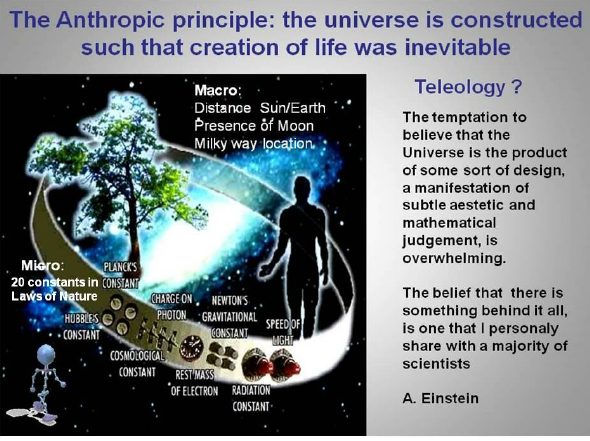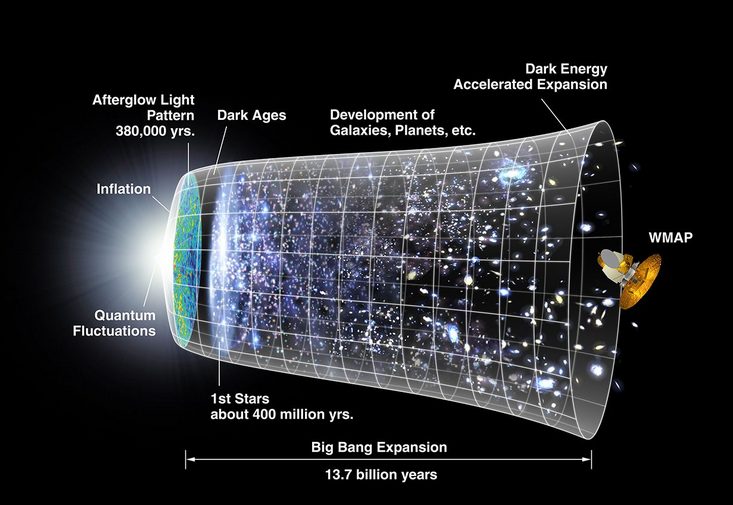The anthropic principle is the idea that the universe must be the way it is because we are here to observe it. In simple terms, it suggests that the conditions in the universe—such as the right mix of physical laws and constants—are just right to allow life to exist, and that’s why we are able to ask these questions in the first place. It’s like saying, “The universe appears fine-tuned for life because if it weren’t, we wouldn’t be here to notice.” There are two main types:1. Introduction
The universe is filled with mysteries, but one of the most puzzling questions is why everything seems so perfectly set up to support life. This is where the anthropic principle comes in. In simple terms, the anthropic principle suggests that the universe’s physical laws and constants are precisely tuned to allow for the existence of life. It addresses the idea that the universe is structured in a way that makes life possible, and if it were any different—even slightly—life as we know it wouldn’t exist. This principle helps us understand our unique place in the cosmos, emphasizing that the conditions of the universe must be just right for us to observe it.
The anthropic principle doesn’t just answer a scientific question; it invites us to think about the broader implications of why the universe seems so finely tuned for life. Whether you’re a philosopher pondering the nature of existence or a physicist exploring cosmological constants, the anthropic principle plays a critical role in how we think about the universe and our place within it.
Explaining the Anthropic Principle
At its core, the anthropic principle revolves around the observation that the universe’s laws and constants—like the strength of gravity or the charge of an electron—are set at values that make life possible. But why is this? The anthropic principle explains this by stating that the universe must have these conditions because we are here to observe them.
To make this clearer, think of it this way: Imagine you’re baking a cake. For the cake to turn out perfectly, the oven temperature, ingredients, and baking time all have to be just right. Similarly, for life to exist, the universe’s “ingredients” (like gravitational forces, atomic masses, etc.) have to be precisely aligned. If you change any of these ingredients—say, if gravity were a little stronger or the Earth’s distance from the sun were different—life might not have arisen at all.
The anthropic principle helps scientists and philosophers grapple with why the universe is so well-suited for life. It suggests that the universe isn’t necessarily designed this way for any particular reason, but rather, we are only able to ask these questions because we live in a universe where conditions allow us to exist in the first place【13†source】【14†source】.
This principle doesn’t solve all the mysteries of existence, but it provides a framework for understanding why the universe is the way it is—seemingly fine-tuned for life.

The Two Forms of the Anthropic Principle
Weak Anthropic Principle
The weak anthropic principle suggests that we observe the universe in its current, life-supporting state simply because we exist in it. This principle explains that the physical conditions we see around us are compatible with life because, if they weren’t, we wouldn’t be here to observe them. In other words, the universe could have taken many forms, but we find ourselves in one that supports life because, in any universe that didn’t, no observers would be present.
An example of this is the Earth’s distance from the sun. If the Earth were just slightly closer or further from the sun, the conditions would likely be too extreme for life as we know it to develop. The weak anthropic principle simply observes that because we are here, the universe must have the right conditions for life, but it doesn’t necessarily imply a deeper meaning beyond that.
This principle has a practical application in science, such as when scientists study why certain constants in physics (like the strength of gravity or the mass of subatomic particles) take the values they do. The weak anthropic principle suggests that these values are not surprising—life exists precisely because those constants are suitable for it【12†source】【14†source】.
Strong Anthropic Principle
The strong anthropic principle goes further, suggesting that the universe isn’t just coincidentally suitable for life—it’s compelled to be this way. According to this view, the universe’s laws and constants must allow life to develop, meaning that life is not just a byproduct of the universe’s conditions, but rather a necessary outcome.
This version raises philosophical and scientific questions about whether the universe was designed with life in mind. Some interpret the strong anthropic principle as supporting the idea that there is a purpose or design behind the universe’s structure, potentially pointing to deeper metaphysical or theological implications. It implies that life was not only a possible outcome but an inevitable one, given the conditions of the universe【12†source】【14†source】.
The Implications of the Anthropic Principle
The anthropic principle, in both its weak and strong forms, has far-reaching implications for cosmology, philosophy, and science. One of the most significant implications is the idea that the universe could have taken many different forms, but we find ourselves in a version with the precise characteristics necessary for life. This fine-tuning of the universe raises questions about whether this is a mere coincidence or if there is a deeper reason for it.
For cosmology, the anthropic principle offers a framework for explaining why the physical constants and laws of the universe are so perfectly suited for life. For example, slight changes in the strength of gravity or the charge of the electron could prevent the formation of stars, planets, and, ultimately, life. This fine-tuning is one of the great puzzles of modern science【13†source】.
In philosophy, the anthropic principle sparks debates about whether the universe’s life-supporting conditions point to a purposeful design or if they are simply the result of chance. Some argue that the principle hints at a deeper reason for the universe’s structure, potentially supporting ideas like intelligent design or the existence of a multiverse, where countless universes exist with different conditions, and we just happen to be in the one that supports life. Others, however, see the principle as a coincidence that requires no further explanation【12†source】【14†source】.
Overall, the anthropic principle provides an important lens through which to view the relationship between life and the cosmos, inviting both scientific investigation and philosophical reflection.

Challenges and Criticisms
The anthropic principle has been the subject of much debate, particularly because many critics argue that it doesn’t offer a real explanation but rather an observation. In essence, it’s not a scientific theory that can be tested or falsified; instead, it simply states that we observe the universe as it is because it supports our existence. Critics see this as a circular argument—akin to saying, “The universe allows life because we are here to notice it.” As such, some scientists and philosophers believe that the anthropic principle does not truly explain why the universe is fine-tuned for life【12†source】【14†source】.
One of the most prominent criticisms is that the anthropic principle might not provide any deeper understanding of the universe but rather restates the obvious. Opponents argue that it doesn’t explain why the constants of nature have the specific values they do, and it fails to offer a mechanism for this fine-tuning. The principle is often compared to stating, “Fish exist in water because water supports fish,” which doesn’t really explain why water exists or why fish developed in the first place.
An alternative explanation that has gained traction is the multiverse theory. This theory suggests that there are potentially countless universes, each with different physical laws and constants. In this vast “multiverse,” only a small fraction of universes would have the right conditions to support life. By this reasoning, our universe is just one of many, and it happens to have the right conditions for life—so it’s not surprising that we find ourselves in it. This theory offers an alternative to the anthropic principle by explaining fine-tuning as a result of chance, rather than necessity【12†source】【14†source】.
Conclusion
The anthropic principle, whether in its weak or strong form, plays a central role in discussions about the fine-tuning of the universe. It invites us to consider why the physical constants and laws of nature are so perfectly aligned to support life, and it raises philosophical questions about the very nature of existence.
While the principle has its critics, who argue that it doesn’t offer a true scientific explanation, it has nonetheless shaped important discussions in cosmology and philosophy. The alternative idea of a multiverse offers another explanation for why our universe seems so finely tuned, suggesting that perhaps many universes exist, and ours just happens to be one where life can flourish.
Ultimately, the anthropic principle challenges us to think deeply about our place in the cosmos. Is the universe finely tuned for life by chance, or is there a deeper purpose or design behind it? As we explore these questions, we are reminded of the profound mysteries of existence and the vastness of the universe—a universe that, for reasons still unknown, allows us to observe and contemplate it.
FAQ :
1. What is the anthropic principle in simple terms?
The anthropic principle suggests that the universe’s physical laws and constants are precisely set in a way that allows life to exist. It explains that the universe seems fine-tuned for life, and if any conditions were slightly different, we wouldn’t be here to observe it.
2. What are the two main forms of the anthropic principle?
There are two main forms:
- Weak Anthropic Principle: We observe the universe in a life-supporting state because we exist in it. The universe must have conditions suitable for life, or else we wouldn’t be here to notice them.
- Strong Anthropic Principle: This version suggests that the universe is not only capable of supporting life, but it must allow life to develop. It implies that life is an inevitable outcome of the universe’s structure.
3. How does the weak anthropic principle explain our existence?
The weak anthropic principle explains that we observe a universe capable of supporting life because, in any universe that couldn’t support life, there wouldn’t be anyone to observe it. It highlights that our existence is evidence that the universe has life-friendly conditions, though it doesn’t claim there’s a deeper reason behind it.
4. Does the anthropic principle suggest the universe was designed for life?
The strong anthropic principle implies that the universe may be compelled to support life, raising questions about whether it was designed with life in mind. However, this remains a topic of philosophical debate, and many scientists are skeptical of drawing such conclusions based on the anthropic principle alone.
5. What are some criticisms of the anthropic principle?
Critics argue that the anthropic principle doesn’t offer a true scientific explanation but is more of an observation. It’s often seen as circular reasoning, stating that the universe allows life because we are here to observe it. Additionally, alternative explanations, like the multiverse theory, suggest that there could be many universes with different conditions, and we happen to live in one that supports life.
6. What is the multiverse theory, and how does it relate to the anthropic principle?
The multiverse theory proposes that there are potentially countless universes, each with its own physical laws and constants. According to this theory, our universe is just one of many, and life exists here because this particular universe has the right conditions. This theory offers an alternative to the anthropic principle by explaining fine-tuning as a result of chance rather than necessity.
7. Does the anthropic principle have implications beyond science?
Yes, the anthropic principle has broad implications in philosophy and cosmology. It sparks discussions about the nature of existence, the possibility of a designed universe, and the origins of life. Some see it as evidence of a deeper reason for the universe’s fine-tuning, while others view it as a coincidence that requires no further explanation.



